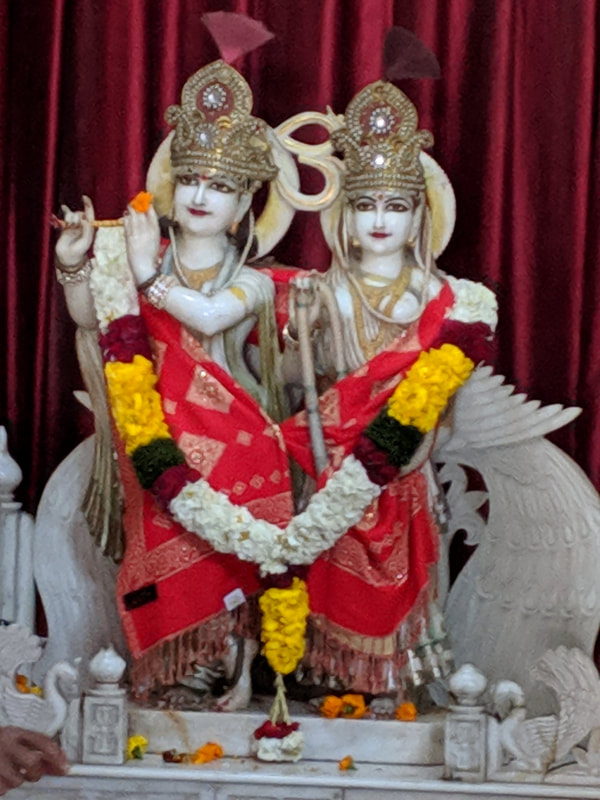|
Perfect God, the Creator of Imperfections
Today in the world, the prominence of logic over emotions is growing. One of the commonly asked questions is why God created all the imperfections and evils in the world which caused sufferings to the human beings. Why there isn’t happiness and goodness all over. In Hinduism, the question has been researched since Vedic time. It is attempted here to solve the riddle. Vedanta-Sutras say God (Brahman) is the most essential part of the system and world has originated from Him. Vedantins accept Brahman as Sat-Chit-Ananda & Ananta. It means Existence-Consciousness-Bliss & Infinite. As per Vishnu Purana, God possesses six most glorious powers viz. Sovereignty (Independence), Omnipotence (all powerful, capable to do everything, Supreme), Omniscience (updated knowledge about everything), Immateriality (not composed of matter) and has endless manifestation. When we closely watch, everybody wants to be independent, powerful, prosperous, famous, healthy and to be always happy & satisfied (blissful). But miseries come in forms of diseases (physical, mental & genetic), poverty, misfortune, non-fulfilment of desires, loss of wealth, bad family life etc. So the living beings that are being created by the God face evils, imperfections and miseries. Miseries, Evils & Imperfections: Bhagwan Vyasa in Shrimad Bhagavad Mahapurana has mentioned three causes of miseries. These miseries caused by the body and mind (Adhyatmika), by another living entity (Adhibhautika) and by nature (Adhidaivika). Patanjali Yoga Darshan informed that these three causes result into pain, heat distress and bad memories. Rishi Patanjali further explained, when the person feels deficiencies in comforts and due to which develops anger, malice, greed, attachments etc. Causes of miseries & Imperfections: The miseries/sufferings are experienced in the mortal body. Bhagwan Krishna in Bhagavad Gita has mentioned (in chapter 3) in the theory of Karma that mental tendencies, character, potentials etc. are formed by the virtuous and vicious actions (karmas) done in past. Rishi Patanjali has explained that the reservoir of past deeds form the Karmashya which is the root cause of five afflictions/sufferings viz. Avidya (ignorance), I-am-ness or egoism, desires, hatred & attachment to life. These accumulated karmas are enjoyed / suffered. There is continuous flow of pleasure and pain till the karmas are extinguished. In the yogic sense, Avidya means something that goes far beyond ordinary ignorance. Avidya is a fundamental blindness about reality, self (soul) and God (Brahman). Whether God is Creator of Imperfect World: It is incorrect to think that the world, beings, or any of the creations of God are imperfect. It is worth mentioning that Vedas identified six basic creations viz. Supreme Being (God), Souls (Jivas), Non-material stuff (Shuddhsattva), matter (Prakriti), outward consciousness (Dharmabhuta-Jnana) and Time (Kala). All the creations are perfect in it. Rishi Kapil in Samkhya Darshan has explained that Prakriti has three attributes viz. Sattva, Rajas and Tamas in equal proportion in latent state. In Samkhya darshan, Rishi Kapil has postulated that Prakriti is cause of world (chapter-1). Two elements viz. intellect & ego are produced by Prakriti and 21 elements arise from ego. These twenty one elements are five subtle tanmatra (forms or visibility, taste, smell or odour, touch and sound); five organs of senses, five organs of actions, five gross elements and manas. These are the root cause of mortal body without these actions (karma) cannot be done (chapter-3). When the proportion of three attributes of Prakriti is not equal, Tanmatra continue to have tendency to build gross body. Avidya (Ignorance) is bondage of Jivatma with mortal body. The bondage is broken only when spiritual wisdom is gained about Jivatma and God. Hence, the Avidya and bondage with body create miseries, evils and imperfections. The Vedas teach that the soul is divine, only held in the bondage of matter; perfection will be reached when this bond will burst, and the word they use for it is therefore, Mukti — freedom, freedom from the bonds of imperfection, freedom from death, misery and re-birth. God's creation is both sacred and perfect. However, since he also envelops his creation with Maya (delusion) and subjects it to the modifications of Nature, it may appear to be imperfect, just as the light from the sun appears to be imperfect when the sky is filled with clouds. Why God is unaffected:
These co-existent eternal entities attain partial modification owing to the dependence on another (Paradhina-visesapati) which justifies His claim to be all-creator. The modifications are of two kinds. One kind of change can transform the basic nature of the substance, as when the milk changes into curd. The substance itself is lost and something else takes its place. The non-eternal types come into being in their entirety, undergo change in nature and they perish. The change in the regard to eternal entities is not of this kind. In case of eternal substances, the creative process consists in generating new temporary traits without modifying the substratum which is co-eternal with the creator. The change is not a change of basic nature (Dharmi-svarupa) but is the generation of many traits or subsidiary characteristics which can be eliminated without impairment to the substance in question. For example, Prakriti evolves Mahat and subsequent categories when it is stirred by the will of the God, but when creative process terminates at the end of the creative cycle, the eternal substance Prakriti remains in its pristine form, and again brings forth the world when the new cycle starts. The change in the Jiva, who is by nature a center of intelligence and bliss, is generated by ignorance (Avidya). Consequently, he gets bound to various kinds of bodies. When ignorance is affected by the grace of God, the Jiva subsists in his own basic nature which cannot be modified by all the bodily changes. Hence, the God, as the great creator, generates these changes producing new characteristics of a temporary nature without impairment to the basic nature of the substances which are coeval with him.
0 Comments
Leave a Reply. |
Archives
March 2024
Categories
|

 RSS Feed
RSS Feed